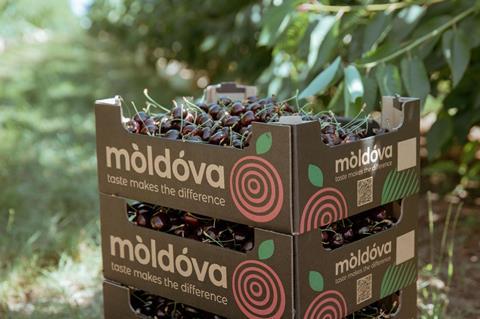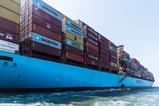Revised trade agreement increases quotas for plums, table grapes, apples, and cherries, while also granting duty-free access for garlic and tomatoes, marking an important step in country’s journey toward EU membership

Moldova is set to enjoy improved access to the EU for its a range of fresh produce thanks to an updated trade agreement put forward this week.
According to European Commission website, an update to the terms of the EU-Moldova Deep and Comprehensive Free Trade Area (DCFTA) will see the bloc’s tariff rate quotas increased for Moldovan plums, table grapes, apples, and cherries.
The deal, which will be ratified and formally endorsed by both parties following legal revision, also grants Moldova duty-free access for its garlic and tomatoes – although imports of the latter must still meet a minimum reference price.
According to the EC, this marks “an important step towards building a stable, long-term and balanced trade relationship”, especially as Moldova moves towards EU membership.
While most Moldovan exports already benefit from duty-free access under the existing EU-Moldova Association Agreement, the revised terms offer further opportunities for both sides, while taking into account the sensitivities of certain agricultural sectors, it added.
For plums, table grapes, apples, and the quota increase allows for greater exports, but is also said to ensure Moldovan exporters continue to export at least the same quantities as they did before.
For its part, the EC noted, Moldova has agreed to improve access for certain agricultural exports from the EU.
New market access for Moldovan products is conditional on the gradual alignment of Moldova to relevant EU production standards, such as the use of pesticides.
“Today’s agreement is yet another step in deepening the already significant trade relations between Moldova and the EU,” said Maroš Šefčovič, Commissioner for Trade and Economic Security. “It is fair and balanced and safeguards the interests of EU farmers, providing much needed stability and predictability in these uncertain times.”
Christophe Hansen, European Commissioner for Agriculture and Food, added: “We are supporting Moldova’s European path through strong economic cooperation. This package sends a clear message: to Moldovan producers and exporters, we are opening new doors; and to EU farmers and Member States, we are listening and protecting your key interests too. I look forward to our economies mutually reinforcing each other through this strengthened partnership.”








